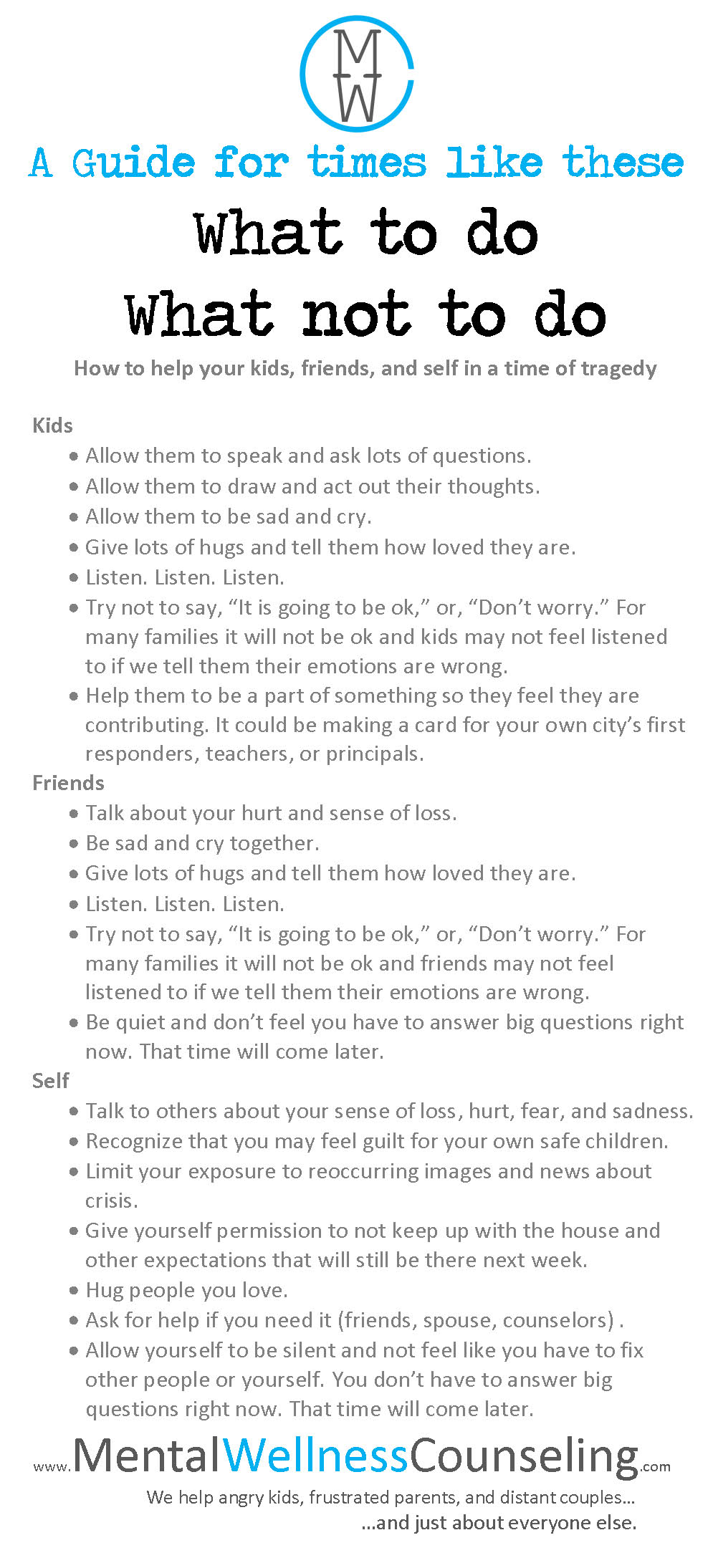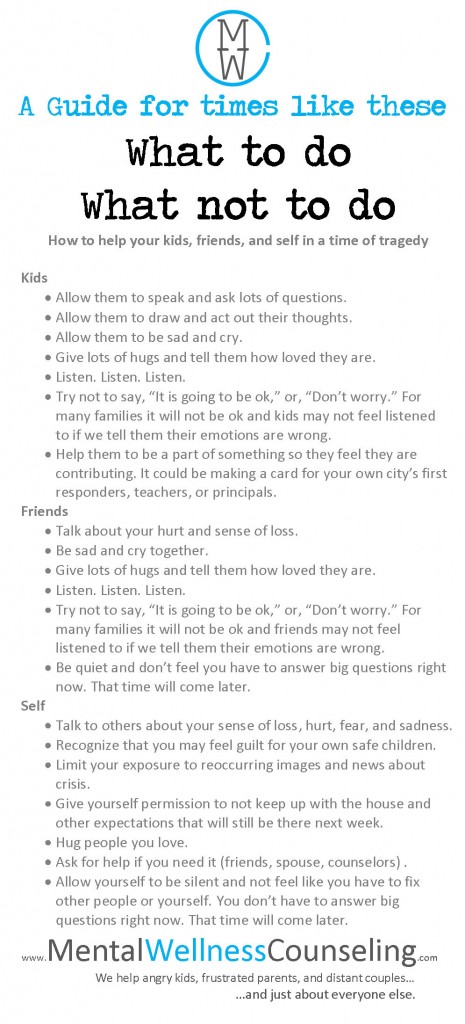[pinit]
[pinit]
A Guide for times like these
What to do
What not to do
How to help your kids, friends, and self in a time of tragedy
Kids
Allow them to speak and ask lots of questions.
Allow them to draw and act out their thoughts.
Allow them to be sad and cry.
Give lots of hugs and tell them how loved they are.
Listen. Listen. Listen.
Try not to say, “It is going to be ok,” or, “Don’t worry.” For many families it will not be ok and kids may not feel listened to if we tell them their emotions are wrong.
Help them to be a part of something so they feel they are contributing. It could be making a card for your own city’s first responders, teachers, or principals.
Friends
Talk about your hurt and sense of loss.
Be sad and cry together.
Give lots of hugs and tell them how loved they are.
Listen. Listen. Listen.
Try not to say, “It is going to be ok,” or, “Don’t worry.” For many families it will not be ok and friends may not feel listened to if we tell them their emotions are wrong.
Be quiet and don’t feel you have to answer big questions right now. That time will come later.
Self
Talk to others about your sense of loss, hurt, fear, and sadness.
Recognize that you may feel guilt for your own safe children.
Limit your exposure to reoccurring images and news about crisis.
Give yourself permission to not keep up with the house and other expectations that will still be there next week.
Hug people you love.
Ask for help if you need it (friends, spouse, counselors) .
Allow yourself to be silent and not feel like you have to fix other people or yourself. You don’t have to answer big questions right now. That time will come later.
Joseph R. Sanok, MA, LLP, LPC, NCC grieves as a parent, citizen, and fellow human with those at Sandy Hook in Newtown, CT. It is hard to know what to say and Joe was apprehensive about writing anything. But parents asked for help. Joe is a licensed counselor in Traverse City, MI.



